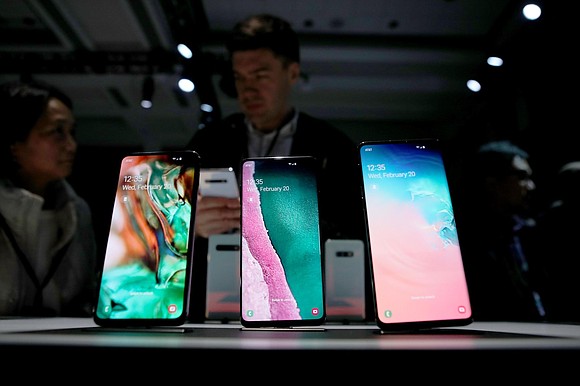Samsung’s profit warning will worry other smartphone makers

The South Korean tech giant said Tuesday that its earnings for the first quarter of the year will fall short of market expectations because of slumping demand for the memory chips and display panels it makes for electronic devices.Samsung had already warned in January that sales and operating profit would drop by a double-digit percentage this quarter, citing weakness in those same businesses.Tuesday’s warning is just the latest sign of the pain some of the world’s top tech hardware makers and their suppliers are experiencing, particularly in the smartphone industry.”It all ties back to the smartphone market outlook, which is not really buoyant at this point,” said Kiranjeet Kaur, a Singapore-based analyst with research firm IDC.The global market for smartphones shrank more than 4% in 2018 and could contract again this year, according to IDC. China, the world’s biggest market for the devices, has been particularly weak, as demonstrated by Apple’s (AAPL) stunning iPhone warning at the start of the year.Analysts say a range of factors are hurting the industry, including increasingly saturated markets, consumers replacing their phones less often and frustration over rising prices.The problems are ricocheting through supply chains. Smartphone makers are left with more components than they need to meet demand, which means new orders for chips and display panels will be weak, Kaur said. Samsung is the world’s biggest seller of smartphones. But it also has a huge business making key components for rival handset manufacturers. That means it suffers on both fronts when the industry runs into trouble.Shares in Samsung fell as much as 1.3% in early trading in Seoul on Tuesday. They later recovered some of their losses to close down about 0.6%.Apple’s difficulties appear to be hurting Samsung, which supplies organic light-emitting diode (OLED) screens for the latest iPhones. Samsung said Tuesday that profits in its display business have worsened because of reduced demand from its large OLED customers.”Samsung had a good ride with OLED panels in premium phones but with premium phone sales slowing down, Samsung will either cope with lower demand for its panels or adjust strategy,” Kaur said. The South Korean company said fierce competition from Chinese rivals is also driving down prices in the display industry. Adding to the grim situation, the company’s memory chip business, which for years powered it to record profits, is now in the doldrums. The current chip cycle “has peaked,” Kaur said, but it could get a boost in the future if smartphones start using more artificial intelligence and 5G apps, which require greater computing power. “But that will take some time,” she warned.Sophie Jeong and Eugene Jun contributed to this report.







